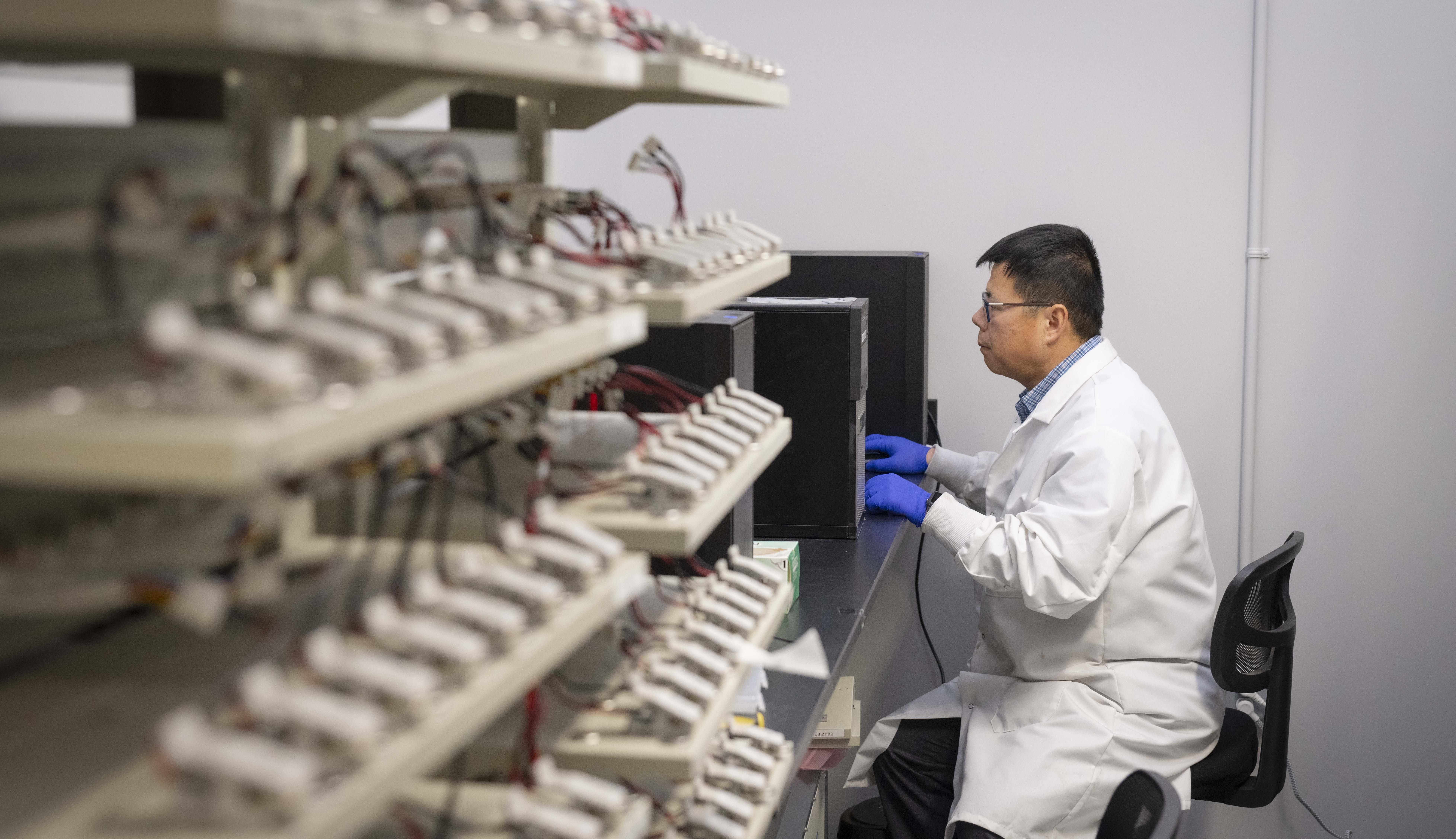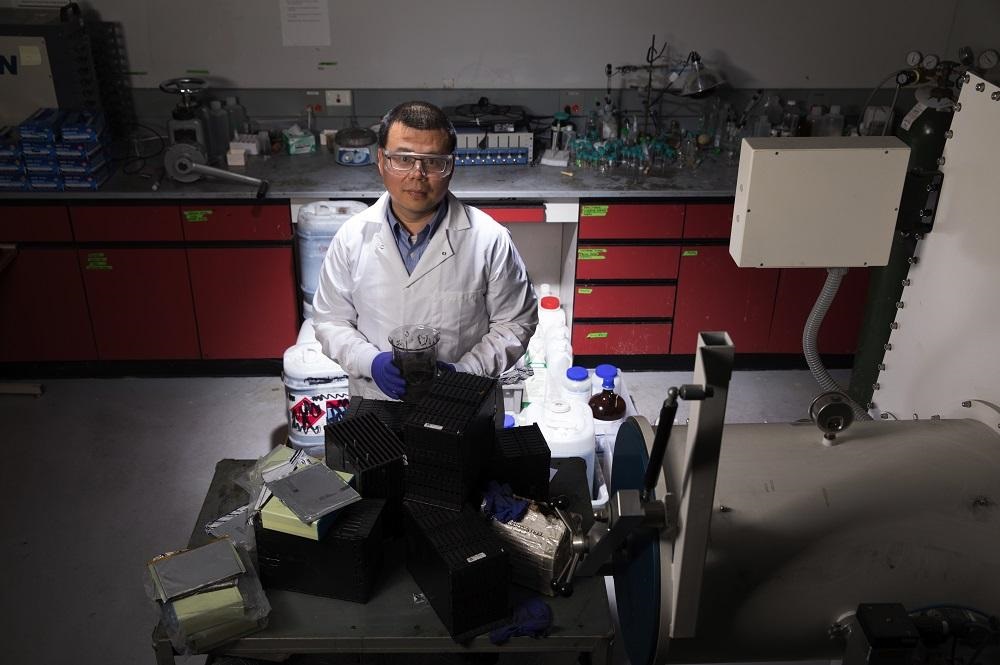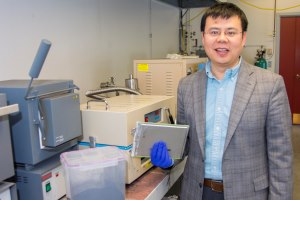
The United States Advanced Battery Consortium LLC (USABC), a collaborative organization of FCA US LLC, Ford Motor Company, and General Motors, has awarded a $1 million contract to a research team at Worcester Polytechnic Institute (WPI) to support further development and scale-up of a novel process for recycling lithium-ion (Li-ion) batteries and the production of new plug-in hybrid electric vehicle (PHEV) battery cells using the recovered cathode material.
The competitively bid contract award is 50 percent funded by the U.S. Department of Energy (DOE); the remaining balance will be funded by WPI and a battery manufacturer.
"Batteries are among the costliest components of electric and hybrid vehicles," said Yan Wang, developer of the process, who is director of WPI’s Electrochemical Energy Laboratory and an affiliated faculty member in the university’s Center for Resource Recovery and Recycling (CR3). "If we can reduce the cost of lithium-ion batteries through this process, while also recovering and reusing large amounts of materials that are currently being thrown away, we can offer a value-driven path towards improved industry sustainability."
The 24-month contract will enable WPI to demonstrate and scale up its recycling process, which overcomes a major hurdle that has impeded the wide-scale recycling of Li-ion batteries. Commercially produced Li-ion batteries use a variety of chemistries for their cathodes, which are the most expensive parts of the batteries, requiring recyclers to sort the batteries to avoid mixing incompatible formulations. This labor-intensive and expensive process is complicated by the difficulty of ascertaining the exact material used in a given battery.
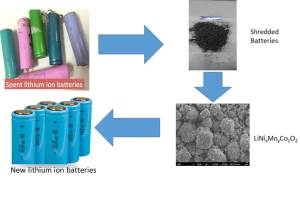
The process developed by Wang will work with any cathode chemistry, meaning that no—or minimal—sorting is required. In the process, the batteries are shredded and the steel, aluminum, iron, copper, and plastics are recovered and recycled. The cathode materials, lithium (Li), nickel (Ni), manganese (Mn), and cobalt (Co), are recovered and then used to synthesize new cathodes with the formula LiNixMnyCozO2. The ratio of Ni, Mn, and Co can be adjusted based on industry needs.
In laboratory studies, Wang and his team have been able to recycle up to 80 percent of the cathode materials from unsorted batteries using this process.
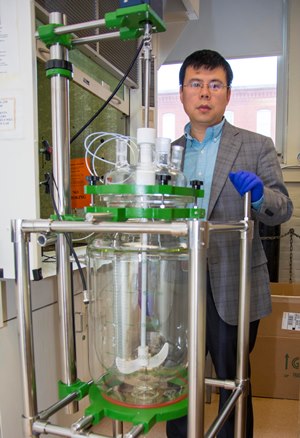
In the study funded by USABC, Wang and his team will seek to scale up this closed-loop process, from the current lab scale, which produces coin cells, to a larger process that will be validated using 25 Ah cells made by a world-class battery manufacturer under subcontract to WPI. Wang says his research shows that his recycling process could cut the cost of cathode materials for vehicle batteries by more than 30 percent.
USABC is a subsidiary of the United States Council for Automotive Research LLC (USCAR). Enabled by a cooperative agreement with the U.S. DOE, USABC’s mission is to develop electrochemical energy storage technologies that support commercialization of hybrid, plug-in hybrid, electric, and fuel cell vehicles. In support of its mission, USABC has developed mid- and long-term goals to guide its projects and measure its progress. For more information, visit https://uscar.org/usabc/.
“We are pleased to announce the award of this contract to Worcester Polytechnic Institute as part of USABC’s broad battery technology research and development programs,” said Steve Zimmer, executive director of USCAR. “These programs are critical to advancing the technology needed to meet both near- and long-term goals that will enable broader scale vehicle electrification.”
About DOE
The U.S. Department of Energy’s overarching mission is to advance the national, economic, and energy security of the United States. DOE’s Vehicle Technologies Office works with industry, academia and national laboratories to develop advanced transportation technologies that reduce the nation’s use of imported oil and increase its energy security. Electrochemical energy storage has been identified as a critical enabling technology for advanced, fuel-efficient, light- and heavy-duty vehicles.
About USCAR
Founded in 1992, USCAR is the collaborative automotive technology company for FCA US LLC, Ford Motor Company and General Motors. The goal of USCAR is to further strengthen the technology base of the domestic auto industry through cooperative research and development. For more information, visit USCAR’s website at www.uscar.org.



